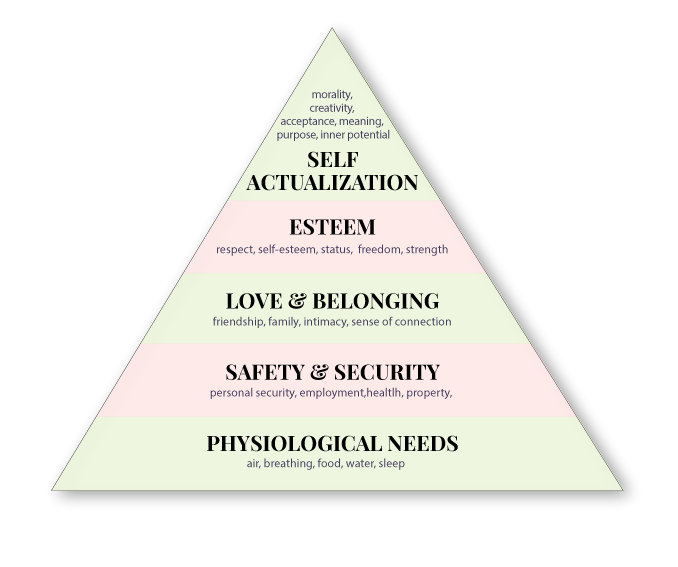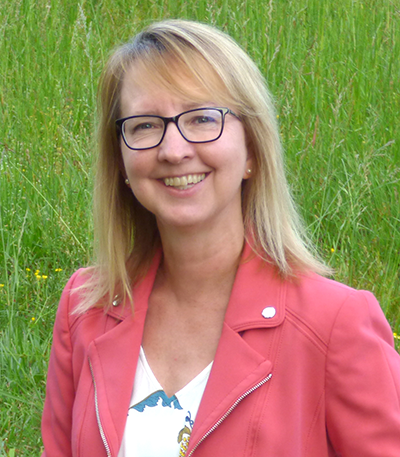Existential angst hit me like a ton of bricks. What was I doing with my career, my life anyway? Feeling lost and unfulfilled in my early 50s, I’d become a cliche, a mid-life crisis in full swing.
As overworked as “mid-life crisis” might be, there’s always seems to be a kernel of truth to cliches. The discontent in our mid-life is real. Evidence shows, most of us have U-shaped curves in how content we feel about our jobs AND our lives in general, with the bottom of the U happening around age 45 or so.
Why do our careers slump?
For our careers, this discontent is often tied to changes in our brain – both physical and philosophical.
Physical Brain Changes
The physical changes in our brain have us shifting from to fluid intelligence to crystallized intelligence, a phenomenon discovered in the 1970s. In broad strokes, this means we may not come up with new ideas as quickly as we used to in our 20s, but in our 40s and beyond we get better at using our collective experience – our wisdom – to come up with more suitable solutions.
I distinctly remember feeling a weight had been lifted off my shoulders when I first read about this concept. The frustration with the changes in my brainstorming abilities was now replaced with embracing my own wisdom. From Strength To Strength by Arthur C. Brooks really opened my eyes to this concept and quite a few other mid-life and mid-career patterns. Here’s my take on the book if you’d like to learn more.
If you’re also feeling frustrated with the way you’ve been working, there might be some physical changes in play. The good news is you can absolutely adjust the type of work you do to account for those changes. I’ve experienced it in my own career and have coached clients through it as well. The relief that comes from changing just this approach alone has really given them a new leash on life.
Philosophical Changes
As we move through our careers and our lives, our outlooks tend to move as well. We shift our perspectives and beliefs as we experience various situations at work and at home. We’re always growing.
Many people in their late 40s and early 50s have achieved a certain level of ‘success’ in their career: promotions, increased salary, leading larger teams, having more responsibilities. And now they might be wondering: is this all there is?
They might also be experiencing a shift in their family life as their children grow more independent and don’t need to be chauffeurs and chaperones. They could also be asking themselves what are they supposed to be doing with this newly found free time? Who are they now that they’re not so closely tied to their kids?
Again, we can lean on science to help us explain some of these shifts. Maslow’s Hierarchy Triangle has been used for more than 70 years to explain how we might move through our fulfillment needs in general. I propose it’s also a great tool for our careers as well.
Here’s the classic triangle of needs, in which we start with our basic needs for air and food, then can start to move up through each tier.

..So now, take a look at the triangle with your career in mind.
When you first started your career you were likely looking for personal security. Then, once that was established, you probably wanted to feel like you belonged at the workplace, maybe started to develop friendships there as well.
Then you moved to looking for recognition & status, maybe earning some awards and promotions. And yet, after awhile, the need for recognition started to die down. Awards might even start to feel a bit hollow?
You’ve likely moved into the need for meaning and purpose. You might be thinking that your career has much more potential than what the typical corporate ladder can provide – that YOU have much more potential.
Yet, there’s not really a clear path for this sort of direction within our careers. We’re told to just keep climbing that corporate ladder, to get those recognitions, the promotions. Just hang in there ’til retirement. Yuck.
It doesn’t have to be this way.
How to get out of the career slump
There’s a huge wave of us in the second half of our careers who are embracing the search for meaning and purpose in our work. The craving to make a difference is building. You have a unique blend of talents, strengths and expertise. The worlds needs you. Let’s get you out there making that difference!
Get to know yourself, again
When’s the last time you did some deep reflection, spent some time alone? We are always growing and changing. Heck, even at a physical level we go through changes every 24 hours! Did you know 1% of our cells rejuvenate every day? And every 7 – 10 years 90% rejuvenate?! So if you haven’t recently had a good solo trip to get to know this version of yourself, it’s high time you did just that. Can’t get away? Take an afternoon in a local park, or take time every day in a quiet corner for a week or so.
As you get to know yourself again, take a broader look at your skills, talents and strengths. If you like using tools and assessments to help clarify those, check out the following:
StandOut from Marcus Buckingham
Sparktype from Jonathan Fields
Get to know your purpose
As we move through the hierarchy of needs, our concerns typically move from ourselves to our family and then our community. Once we have our own needs settled in, we discover this need to contribute to something larger than ourselves. Some people do that through volunteering, but what if we could do that with our work too?
Here’s a great exercise to think about how you can use your talents to serve:
1) Think of one or two of those strengths, values or talents you defined earlier. Think of the ones you really love putting into action. You are always looking for an excuse to do this thing.
2) Now think about how you use that talent/strength when you interact with others. What are you doing when you find yourself helping others in such a way that it doesn’t even feel like you’ve put in any effort? Or maybe think about what your family & friends come to you for or what they say you do so easily?
3) Now, think about what an ideal world looks like to you – how are people interacting with each other? Put your imagination to use here, allow yourself to be really open to the possibilities.
4) Finally, put those three concepts together to create what we might call your purpose: what strength or two do you use to help others towards an ideal world?
Write these thoughts down, work with the wording until it feels right to you. Maybe let it sit overnight, then come back to it with fresh eyes. Mold the sentence so that when you say it out loud it inspires you to be the best you can be, in that moment, in that day, in the next phase of your career. I’ll put mine at the end of this article, but do yourself a favor and give yours an honest attempt before you read it.
Put your purpose into play
Once you’ve got a handle on your strengths and how you want to be using them, start looking for ways to do just that. Start with thinking about how you can do that thing today. Then tomorrow, look for a way to do it again. You might find that job you’ve gotten bored with feels a lot different. Your career slump may not mean you have to switch jobs or industries after all.
I’ve had several clients who came to me thinking they wanted a new job, but once they got clear on their purpose and strengths, they found fresh energy for their current job. They empowered themselves, they OWNED their purpose, they sought out ways to use their strengths every day and were better for it. Their team, their company, was better for it as well.
Then there are others, myself included, who did make a career pivot. I went from helping business grow (marketing & advertising) to helping people grow (coaching). My parents (in their mid 70s) absolutely adore teaching at the college level and this was something they started doing later in their careers. My father even studied for and earned his second Master’s in his 70s just so he could teach at that level.
Revitalizing your career is absolutely feasible. If you’re ready to start and want a guiding hand, check out Meaningful Momentum. I’d be honored to be a part of your journey.
And as promised, my purpose:
To be kindly curious as I illuminate people’s brilliance so they can love and support their family and friends.
